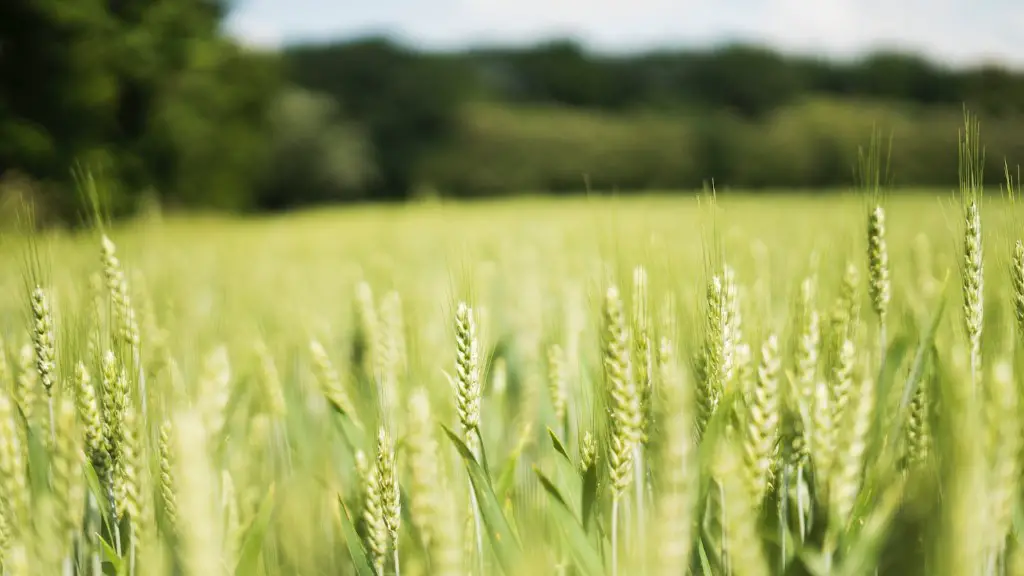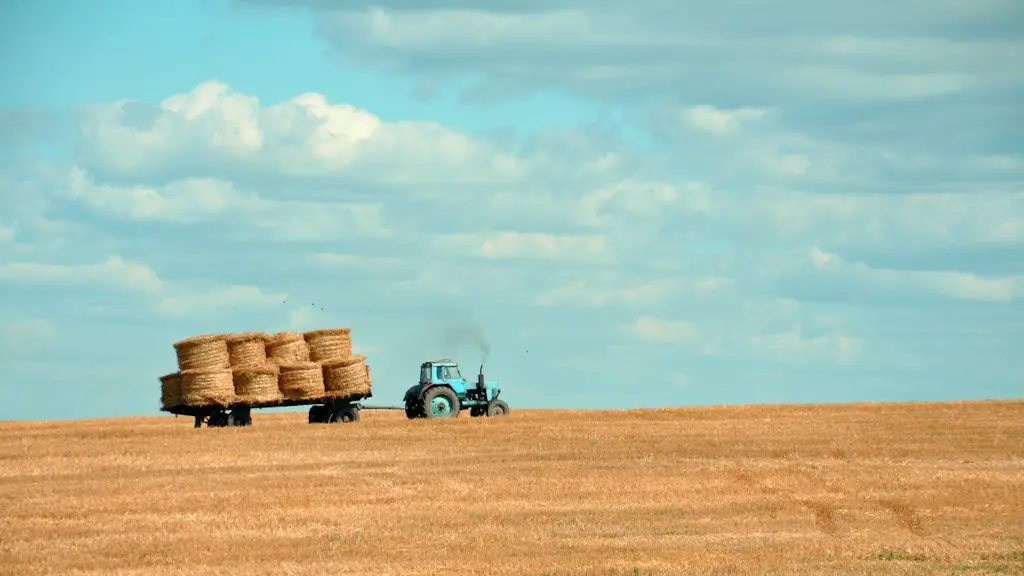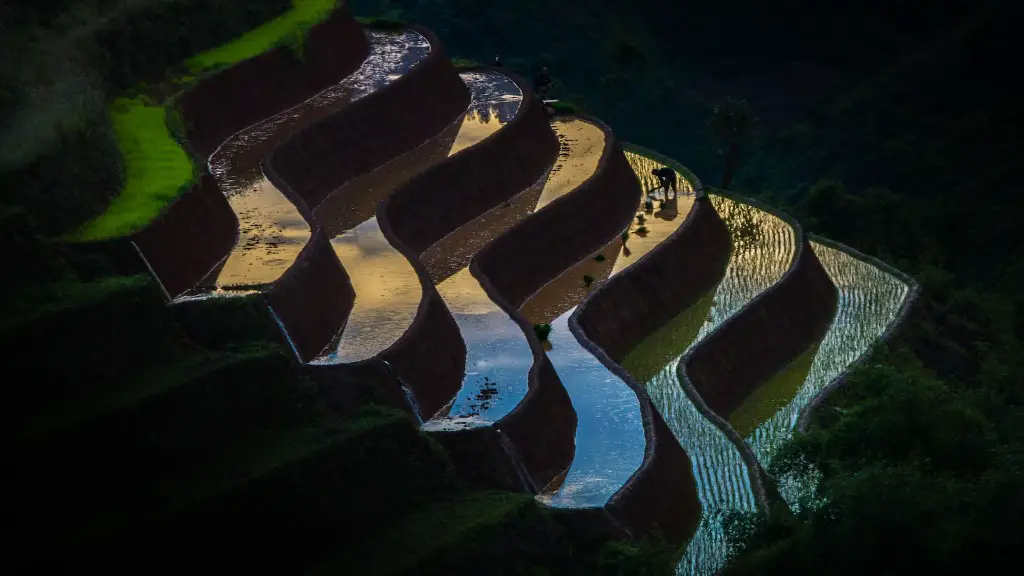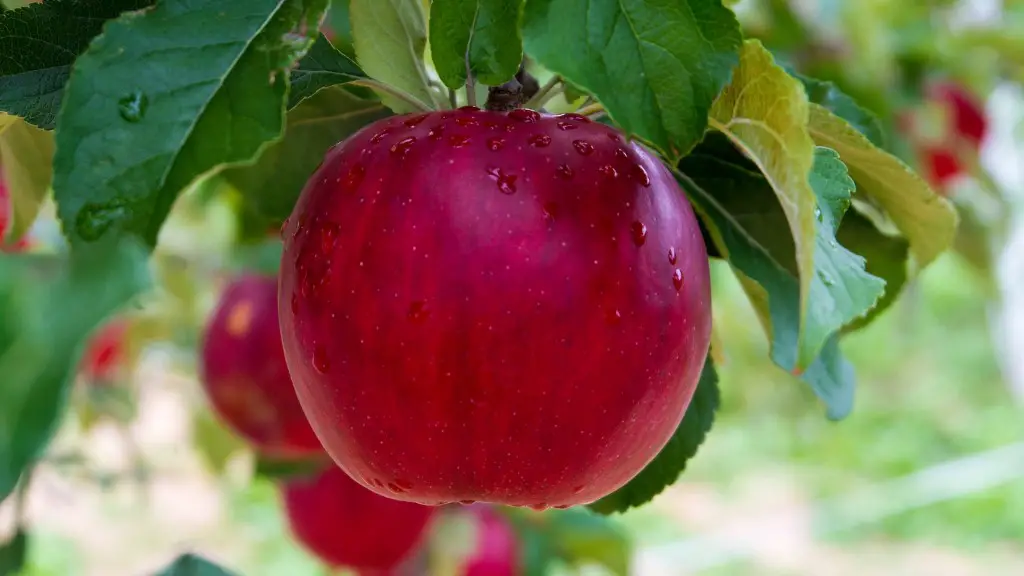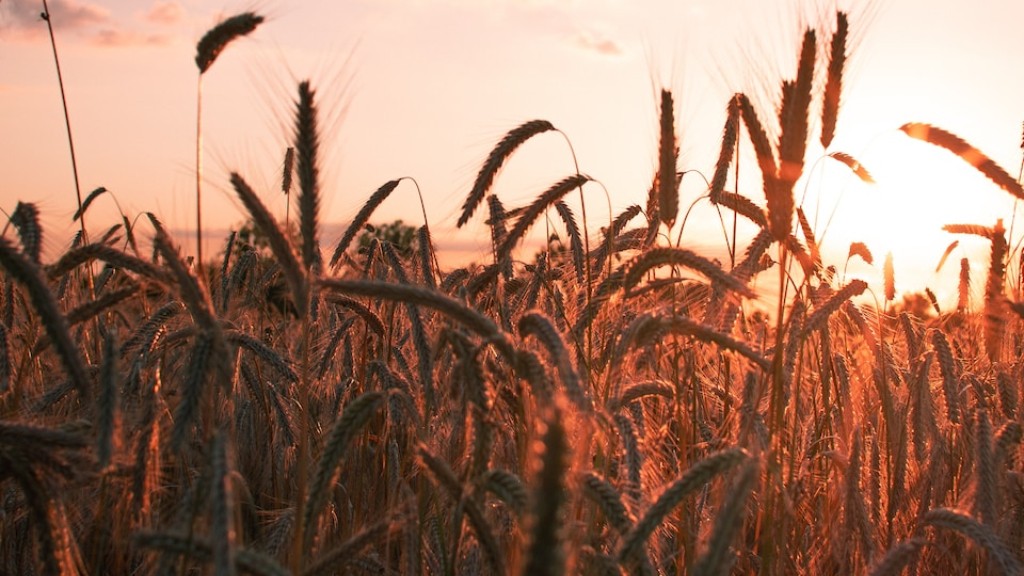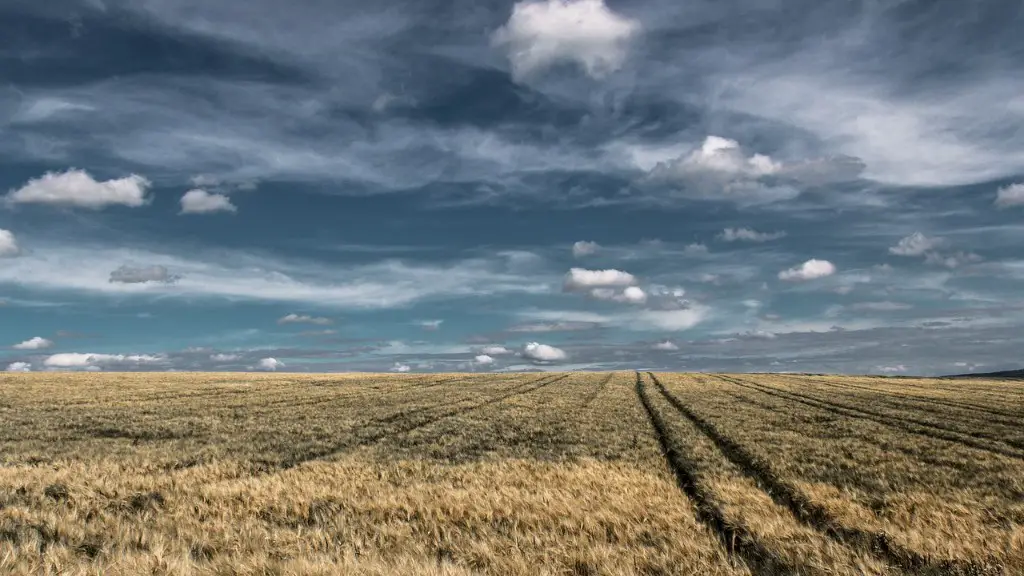Biotechnology is the application of scientific and engineering principles to the processing of materials by biological agents to provide goods and services. Biotechnology has been used throughout history to create improved food and agriculture products. The modern era of biotechnology began in the 1970s with the development of recombinant DNA technology, which allowed scientists to introduce new genes into organisms or to manipulate genes within organisms. This led to the development of genetically modified (GM) crops, which are now widely used around the world. GM crops have been shown to provide significant benefits to farmers, including increased yield, improved pest and disease resistance, and increased tolerance to environmental stresses.
Biotechnology can be used to develop new and more productive strains of crops, as well as to create crops that are resistant to pests and diseases. This can result in increased yields and improved food security. Additionally, biotechnology can be used to create crops that require less water or that can grow in harsher environments. This can help to alleviate the effects of climate change and improve food security in parts of the world that are susceptible to droughts or other extreme weather conditions.
How does biotechnology help with agriculture?
Biotechnology is providing farmers with new tools to make production cheaper and more manageable. For example, some biotechnology crops can be engineered to tolerate specific herbicides, which make weed control simpler and more efficient. This can help farmers save money on herbicide costs and reduce the amount of time spent on weed control.
Biotechnology has played a big role in agriculture over the past few decades. Genetically modified crops, developing biofuels, improving plant growth, and improving plant seed quality are just a few examples of how biotechnology has helped farmers. Biotechnology has also helped improve animal health and breeding.
What are 3 benefits of biotechnology
Biotechnology is a field of science that involves the use of living organisms to create or modify products. Like earlier technologies, biotechnology promises to provide many advantages, especially in three broad categories: environmental protection, higher yields, and improvements in human health.
Environmental protection: Biotechnology can be used to develop environmentally friendly products and processes. For example, biotechnology can be used to develop biofuels that do not contribute to greenhouse gas emissions.
Higher yields: Biotechnology can be used to improve the productivity of crops and livestock. For example, biotechnology can be used to develop drought-resistant crops that can grow in arid conditions.
Improvements in human health: Biotechnology can be used to develop products that improve human health. For example, biotechnology can be used to develop vaccines and medicines.
The application of genetic engineering in agriculture has been a huge success in reducing the use of insecticides by 40 – 60%. This is because GMOs are able to increase crop yields and intensify the productivity of farm animals. Consequently, this has led to a decrease in the amount of insecticides needed to be used in order to achieve the same level of crop protection.
What are 10 benefits of biotechnology?
Biotechnology has a number of advantages that make it extremely beneficial, especially in the agricultural sector. One of the main advantages is the improvement in nutritional quality of crops. This is due to the fact that biotechnology can be used to modify the genes of crops to make them more nutrient dense. This is extremely important in areas of the world where malnutrition is a problem.
In addition, biotechnology can be used to improve crop growth. This can be done by increasing the resistance of crops to pests and diseases. This can lead to increased yields and better quality crops. Another advantage of biotechnology is the reduction in worldwide hunger. This is because biotechnology can be used to improve the efficiency of food production. This means that more food can be produced with less land and water.
Finally, biotechnology has a number of environmental benefits. One of these is the minimal use of pesticides on farms. This is because biotechnology can be used to create crops that are resistant to pests and diseases. This reduces the need for toxic pesticides, which can pollute the environment. In addition, biotechnology can be used to preserve resources. This is because it can be used to create more efficient methods of food production. This means that less land, water, and other resources
Biotechnology has a range of potential applications that can help to achieve sustainable development goals. These include the production of sustainable chemicals, energy and other materials, the development of genetically modified crops that increase food production, the use of seawater bioprocesses to produce fuel and chemicals, and the development of zero-waste bio-processing technologies. In addition, biotechnology can be used to capture carbon dioxide as a raw material, and to develop regenerative medicine technologies that create new organs.
How is biotechnology used in plants?
Agricultural biotechnology is a science that allows plant breeders to make precise genetic changes to place beneficial traits – such as pest resistance, disease resistance or herbicide tolerance – into plants. Biotechnology has been used in agriculture for centuries, but the new technologies that have been developed in recent years have made it possible to make much more precise changes to the genome of plants. This has led to the development of new, higher-yielding and more disease-resistant crops that can be grown with fewer inputs, making them more sustainable and profitable for farmers.
Biotechnology offers many potential solutions to global problems, such as food security, energy security, climate change, aging population, infectious diseases, etc. For example, biotechnology can be used to develop more efficient and resilient crops that can better tolerate harsh conditions, pests, and diseases. Additionally, biotechnology can be used to develop new and renewable sources of energy, such as biofuels. Additionally, biotechnology can be used to develop new therapies and treatments for diseases, including cancer and HIV/AIDS. Ultimately, biotechnology can help make the world a better place by addressing some of the most pressing global challenges.
What are the five advantages of biotechnology
Biotechnology has the potential to make significant strides in reducing our environmental impact, saving energy, and combating rare diseases. Additionally, biotechnology can increase efficiency in industrial manufacturing processes. As we continue to learn more about the potential of biotechnology, its applications will become more widespread and impactful.
What are the pros and cons of applying biotechnology in agriculture?
On the plus side, biotechnology can lead to higher crop yields, increased protection of crops, enhanced nutritional value, and improvements in food production processes. Additionally, it can result in better flavors, fresher produce, and increased shelf life. Finally, biotechnology can provide benefits to the environment – something that is extremely important to me.
On the downside, there is always the potential for negative consequences when messing with nature. Additionally, biotechnology is often expensive and out of reach for many developing countries.
At the end of the day, I think the pros outweigh the cons when it comes to applying biotechnology in agriculture. However, it is important to proceed with caution and be aware of the potential risks involved.
What are 5 biotechnology examples?
Biotechnology plays a major role in our everyday lives, from the food we eat to the medicines we take. It is a rapidly growing field with new applications being discovered all the time. Some key applications of biotechnology include DNA profiling, DNA cloning, transgenesis, genome analysis, stem cells and tissue engineering. Each of these applications has the potential to revolutionize the way we live and improve the quality of our lives.
Products developed with agricultural biotechnology may contribute to the reduction of greenhouse gas emissions in a number of ways. For example, cover crops can be used to provide sustainable biofuels, and fruits and vegetables can be genetically modified to stay fresh longer and reduce food waste. In addition, livestock can be given vaccines that reduce methane emissions, and trees can be genetically modified to absorb more carbon dioxide.
What are examples of agricultural technology
Precision agriculture and robotic systems are playing an increasingly important role in the agriculture industry. These advanced technologies allow businesses to be more profitable, efficient, and environmentally friendly while also improving safety. Today’s agriculture routinely uses sophisticated technologies such as robots, temperature and moisture sensors, aerial images, and GPS technology to maximize production and minimize inputs.
Biotech crops offer many benefits to both farmers and consumers. They can be resistant to diseases and pests, tolerant of herbicides, and produce modified oil/fatty acids. Additionally, they can produce phytase, which helps to improve plant nutrition.
What are 5 examples of crops that utilize plant biotechnology?
Biotech crops are those that have been genetically modified to have certain traits, usually related to pest resistance or herbicide tolerance. The primary biotech crops grown in the United States are corn, cotton, and soybeans, but also canola, squash, papaya, alfalfa, and sugarbeet. Most of the GM corn and soybeans grown in the US are used for animal feed, while the GM cotton is used for both animal feed and textile production.
While a relatively small number of GM crops are grown in the US, some of them are planted on a very large scale. For example, GM soybeans, corn, sugar beets, canola, and cotton make up a significant portion of the corresponding crops grown in the US. These GM crops have been modified to be resistant to herbicides and/or pests, and as a result, they can require less effort and resources to produce.
What are the 3 biotechnology examples
The development of insulin, the growth hormone, molecular identity and diagnostics, gene therapies and vaccines such as hepatitis B are some of the milestones of biotechnology and its alliance with genetic engineering. With the help of these technologies, we have been able to improve the quality of life for many people suffering from diseases.
Biotechnology has played a major role in developing new and improved products in all four industrial areas mentioned above. In health care, for example, biotechnology has been used to develop new and improved medicines and vaccines. In crop production and agriculture, biotechnology has been used to develop new and improved crops and to improve the quality of existing crops. In non-food uses of crops and other products, biotechnology has been used to develop new and improved biodegradable plastics, vegetable oil, biofuels, and other products. Finally, in environmental uses, biotechnology has been used to develop new and improved methods for cleaning up environmental contamination.
Conclusion
One benefit of biotechnology is that it can help farmers to grow crops that are resistant to pests and diseases. This can decrease the amount of pesticide and herbicide that farmers need to use, which can be better for the environment. Biotechnology can also be used to create crops that require less water or that can grow in poor soil conditions. This can help farmers to produce more food with fewer resources.
In conclusion, biotechnology provides many benefits for agriculture, including increased crop yields, improved pest and disease resistance, and more environmentally friendly farming practices.
